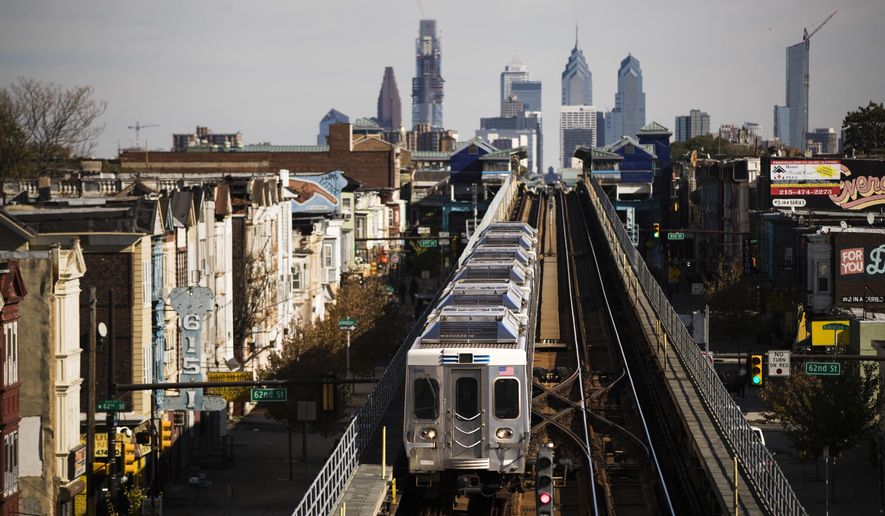UPPER DARBY, Pa. (AP) — Commuters scrambled Tuesday to find alternate ways to travel as transit workers in Philadelphia hit the picket lines after the city’s main transit agency and a union representing about 4,700 workers failed to reach a contract agreement.
The union went on strike at 12:01 a.m. Tuesday, shutting down Southeastern Pennsylvania Transportation Authority buses, trolleys and subways that provide about 900,000 rides a day. The strike does not affect commuter rail lines and most service outside the city.
But at 69th Street Terminal, a major transit hub a few blocks from the city border in Upper Darby, commuters were stuck trying to find another way into Philadelphia.
Ramone Whiters, 32, Drexel Hill, said he was left in a lurch Tuesday because the car he typically takes to work was in the shop. Without another way into the city, he was waiting for an early morning ride.
“At least if they’re going to strike then do it in the summertime,” Whiters said. “It’s cold to be stranded out here.”
TWU Local 234 President Willie Brown said union members will report for picket duty rather than work.
“Despite months of constructive and innovative proposals from our side of the table, management has refused to budge on key issues including safety issues that would save lives and not cost SEPTA a dime,” Brown said. “There is no new agreement, so we are on strike.”
SEPTA expressed its disappointment in the decision in a statement released after the strike was announced, shortly after midnight.
“The decision by TWU President Willie Brown leaves thousands of SEPTA customers without the transit services they rely on for travel to and from work, school and medical appointments,” said SEPTA, adding that it remained “ready and willing” to continue bargaining.
Brown said the two sides remain far apart on pension and health care issues, as well as noneconomic issues such as shift scheduling, break time and other measures that affect driver fatigue.
SEPTA said it is hopeful that a tentative agreement will be reached before Election Day.
“If we foresee an agreement will not come to pass, SEPTA intends to seek to enjoin the strike for November 8th to ensure that the strike does not prevent any voters from getting to the polls and exercising their right to vote,” SEPTA said.
Businesses, hospitals and schools began preparing last week for a possible transit shutdown.
The strike was expected to have a major impact on the Philadelphia school system, though it will remain open. SEPTA provides rides for nearly 60,000 public, private and charter school students.
Democratic Gov. Tom Wolf encouraged both sides early Tuesday to continue talking until an agreement is reached.
“Hundreds of thousands of Pennsylvania residents rely on SEPTA to travel each day to and from work and school and the inability of TWU and SEPTA to reach an agreement is devastating for many of these individuals and their families,” Wolf said in a statement. “This will create extreme hardships for the city and for businesses.”
Democratic Mayor Jim Kenney also urged SEPTA and the union to keep communicating despite the strike, and he urged residents to have patience.
In 2014, union members ratified a two-year contract that averted a threatened walkout. In 2009, a strike by SEPTA workers lasted six days.
Greg Lassiter, 30, of Clifton Heights, said the buses are his only way to work in the city.
“Now, I’m either paying too much for a cab or missing a day of work,” Lassiter said. “They do this every year and it’s ridiculous. I want to know why they’ve got it that bad.”
On Tuesday, Lassiter, who has already paid a $24 SEPTA pass for his usual travel, settled on an $11 Uber ride.
“I guess I’ll have to take that,” he said, “but this is going to add up.”




Please read our comment policy before commenting.